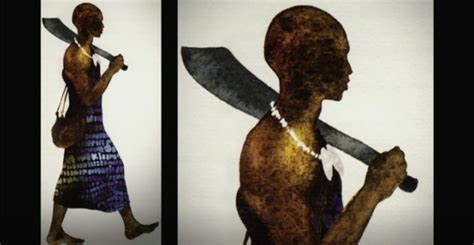Introduction

Chinua Achebe’s literary masterpiece, “Things Fall Apart,” has captivated readers worldwide with its exploration of pre-colonial African society. The central protagonist, Okonkwo, is a complex and often enigmatic figure, whose actions have sparked debate and controversy. One of the most pivotal moments in the novel occurs when Okonkwo kills a man named Ikemefuna. This murder has far-reaching consequences both for Okonkwo and for the Igbo community as a whole. In this article, we delve into the circumstances surrounding Ikemefuna’s death and its profound impact on the novel’s narrative.
The History of Okonkwo and Ikemefuna
Ikemefuna was a young boy from a neighboring village who was given to the Umuofia clan as a peace offering after a long-standing conflict. Okonkwo, being the clan’s most respected warrior, was entrusted with Ikemefuna’s care. Over time, Okonkwo grew fond of Ikemefuna, and they developed a close father-son bond. However, fate took a cruel turn when an oracle decreed that Ikemefuna must be sacrificed to appease the gods.
The Murder of Ikemefuna
The decision to sacrifice Ikemefuna filled Okonkwo with a sense of dread. He was torn between his love for the boy and his duty to the gods and his clan. Ultimately, Okonkwo’s fear of being labeled a coward outweighed his compassion. With a heavy heart, he led Ikemefuna into the Evil Forest and killed him with his own machete.
The Aftermath of the Murder
The murder of Ikemefuna had a profound impact on Okonkwo. He became increasingly withdrawn and guilt-ridden, haunted by the memory of his actions. The clan also suffered from the consequences of Okonkwo’s deed. The gods were angered by the wrongful killing, and the community faced a series of misfortunes, including poor harvests and epidemics.
The Role of Tradition and Masculinity
Okonkwo’s actions can be seen as a reflection of the strict traditions and expectations of the Igbo society. In the pre-colonial era, masculinity was closely tied to strength, bravery, and conformity to societal norms. Okonkwo’s fear of being seen as weak or unmanly drove him to commit a heinous act that ultimately destroyed his life.
The Significance of Ikemefuna’s Death
The murder of Ikemefuna serves as a pivotal turning point in “Things Fall Apart.” It marks the beginning of Okonkwo’s downfall and the unraveling of the Igbo community. It also foreshadows the impending arrival of European colonialism and the profound changes it would bring to African society.
Conclusion
Okonkwo’s murder of Ikemefuna remains a controversial and deeply disturbing event in literary history. It raises profound questions about the nature of tradition, masculinity, and the consequences of our actions. By delving into the circumstances surrounding Ikemefuna’s death, we gain a deeper understanding of Okonkwo’s complex character and the profound impact his actions have on the narrative of “Things Fall Apart.”
